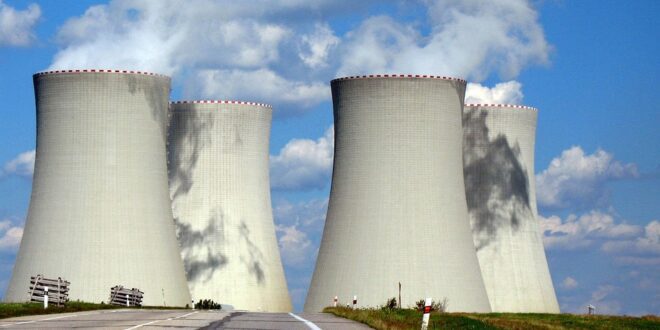Exploring a Bright Future Beyond Fossil Fuels
As we strive for a greener tomorrow, it’s essential to search for renewable sources of energy that can contribute to a sustainable and cleaner environment. Below, we present a diverse range of alternatives to fossil fuels, 20 awe-inspiring solutions leading us towards a brighter future.
1. Solar Power: Harnessing the Sun’s Radiant Energy
Through solar panels and innovative technology, harnessing the sun’s energy is an increasingly popular and efficient way to generate power sustainably.
2. Wind Energy: Dancing to Nature’s Rhythm
Utilizing the wind’s kinetic energy with wind turbines provides us with a clean and renewable source of electricity.
3. Hydroelectric Power: Tapping into the Power of Water
Dams and rivers hold immense potential for generating electricity through hydropower while preserving aquatic ecosystems.
4. Biomass: Recycling Nature’s Gift
Converting organic materials like forest residues, crop waste, and even algae into energy can significantly reduce our reliance on fossil fuels.
5. Geothermal Energy: Earth’s Inner Warmth
By tapping into the planet’s natural heat, we can generate power from hot springs, geysers, and even underground steam reservoirs.
6. Tidal Power: Riding the Ocean Waves
Capable of converting the ocean’s tidal flow into energy, this renewable resource has an incredible potential yet to be fully harnessed.
7. Nuclear Energy: A Controversial yet Low-Carbon Option
While divisive, nuclear power has the potential to provide a low-emission and concentrated energy source for many countries.
8. Biofuels: Fueling Our World Sustainably
Derived from organic materials such as algae, corn, and sugarcane, biofuels offer an environmentally friendly alternative to traditional fossil fuels.
9. Wave Energy: Seizing the Power Within the Sea
By manipulating the energy produced by ocean waves, we can generate renewable electricity in an environmentally friendly manner.
10. Hydropower: Generators through Gravity
By converting potential energy from moving water into mechanical energy, modern hydropower plants offer a sustainable source of electricity worldwide.
11. Natural Gas: Not Just a Backup Plan
Though classified as a fossil fuel, natural gas is considered less harmful to the environment than other carbon-rich energy sources; it can serve as a transitional energy option.
12. Methanol: A Versatile Renewable Resource
Produced from carbon dioxide and hydrogen, methanol can be used as a sustainable fuel and has numerous potential applications, including powering vehicles.
13. Pulverized Fuel and Fluidized-Bed Combustion: Clean Coal Techniques
These technologies aim to reduce the environmental impact of burning coal by utilizing more efficient and cleaner combustion techniques.
14. Biogas: Unleashing the Power of Biomethane
Comprised primarily of methane, biogas is produced from organic waste matter, providing both power and sustainable waste management.
15. Fuel Cells: A Revolution in Clean Energy Conversion
Capable of producing power through a chemical reaction involving oxygen and hydrogen, fuel cells are a clean and efficient alternative to traditional combustion methods.
16. Solar Fuels: Harnessing Sunlight’s Potential
Beyond electricity, sunlight can also be directly converted into chemicals, such as hydrogen or methane, opening up new possibilities for storing solar energy.
17. Flywheels: Storing Renewable Energy Momentum
By storing energy as rotational kinetic energy in a spinning disc, flywheels provide an efficient way to store and discharge electricity when needed most.
18. Synthetic Fuels: Recreating Nature for Energy Solutions
Taking inspiration from natural processes, synthetic fuels can be produced from gases and captured carbon dioxide, offering a cleaner alternative for transportation and heating.
19. Solar Bitumen: Energy from the Roads
Capturing the sun’s energy through photovoltaic cells embedded in road surfaces may revolutionize transportation energy, paving the way for self-sufficient highways.
20. Sea-Water Air Conditioning: Styling the Oceans for Cooling Needs
Utilizing cold seawater for air conditioning systems can significantly reduce energy consumption, helping to cool our cities and protect the planet simultaneously.
From the unlimited potential of the sun’s rays to the dance of windmills and the power of currents, we have unveiled a world of possibilities in our quest for energy independence. By embracing these alternatives and working together, we can create a cheerful, sustainable future for generations to come.
 Mind Uncharted Explore. Discover. Learn.
Mind Uncharted Explore. Discover. Learn.




